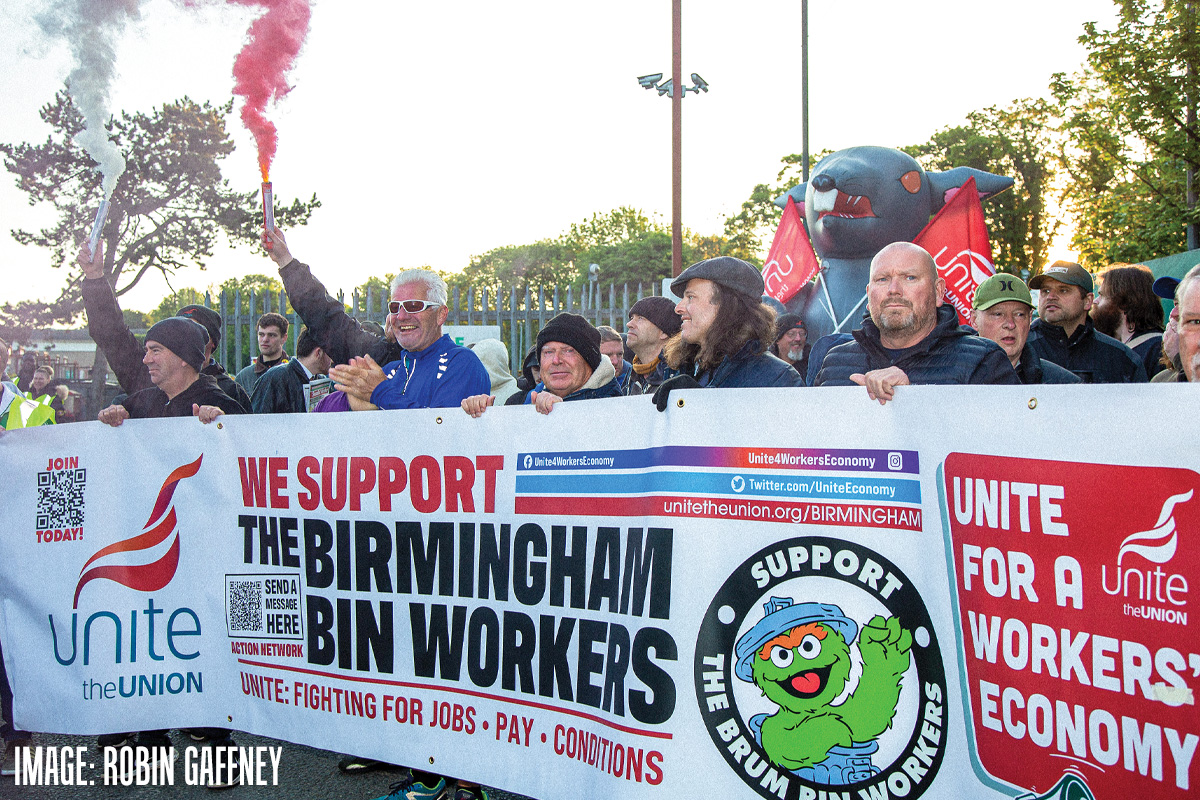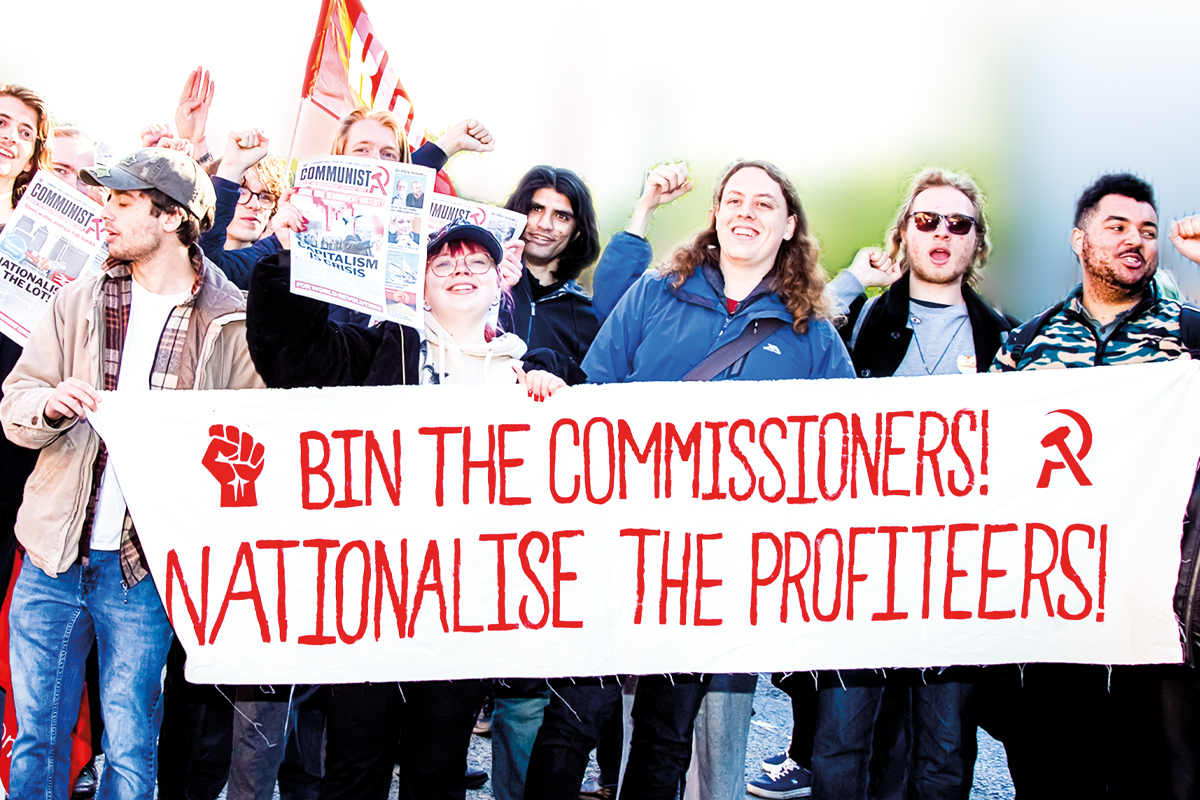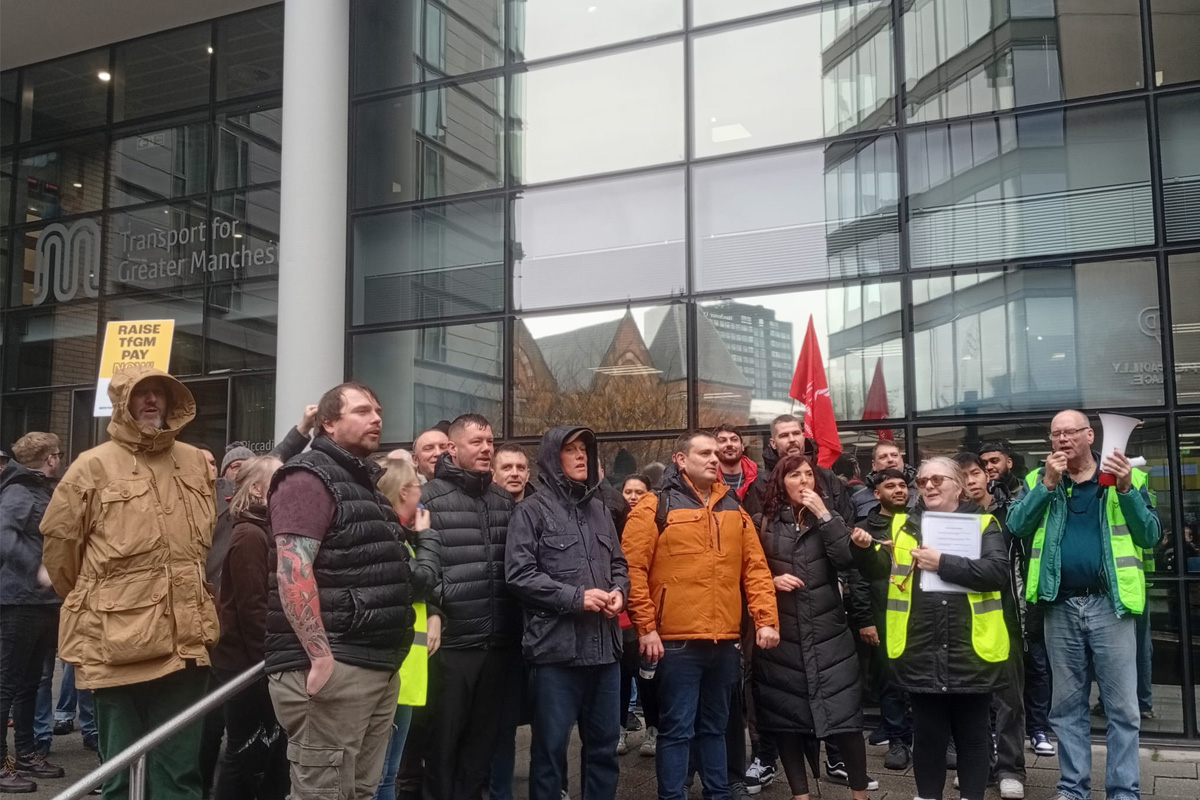Agency workers hired through Job&talent and organised in Unite have successfully balloted for strike action in Birmingham. They will stand shoulder-to-shoulder with their in-house counterparts on 1 December, who have been on indefinite strike since March.
Agency workers make up a staggering forty percent of the ‘waste operations service’. For months, they’ve been the council’s main weapon for undermining the strike. But as their workloads soar and conditions worsen, cracks are appearing.
When we spoke with strikers at a recent outreach event, the mood was jubilant. From the initial 22 agency workers who refused to cross the pickets, the number has now surged to around forty who have pledged to join the action, angered by the council’s abysmal treatment.
This is an unprecedented escalation and a stinging humiliation for a council desperate to sweep this dispute under the rug and carry on with business as usual.
Where next?
But while the mood has been boosted by this advance, workers we spoke to are asking the question: “where next?” Until this point, the strike reached a stalemate; workers have been out since March; and, sooner or later, the strike fund will shrink.

In this scenario, the union cannot afford to treat business ‘as usual’.
Yet Unite’s own statements talk about continuing the strike “beyond local elections in May”! We applaud the audacity – going for the record set by the great miners’ strike – but we must say this is a risky strategy. That is especially the case if the leaders’ words are not backed up with a programme and methods to actually resolve the dispute.
Unfortunately, it seems that such a programme and methods are precisely what is lacking in the top ranks of the union.
For instance: the Job&talent workers are organised in Unite – precisely the union in which in-house bin workers are organised. Yet it took eight months to bring them out in solidarity.
Clearly, there is a mood to strike among these workers and broad sympathy for the in-house workers. According to our information, the agency workers requested the ballot themselves.
Perhaps it took a while for this mood to develop. But then every effort should have been made by union officials to accelerate this process and bring out the workers in solidarity.
Reformist outlook
On the contrary, the lack of coordination up to this point reflects a very unimaginative attitude on the part of the union leadership. More broadly, there is an aversion to solidarity action among union officials everywhere due to the draconian anti-union laws.

In turn, they lack any perspective to take the fight to the government directly – mobilising the working class across different sectors – to fight for reforms across the board, and bring down the anti-union laws in the same movement.
Yet the best way to achieve victory in Birmingham – especially in the context where the council has dug in its heels, backed by the Labour government – is to broaden out the dispute nationally, first across the sector, and then across sectors.
This requires a proactive approach – and therefore a political perspective at the top to mobilise the labour movement against all of Starmer’s austerity and attacks on workers.
The Birmingham strike, which has a national profile and mass support in the city itself, could act as the rallying point. Right now it has been injected with energy. Unite must now strike while the iron is hot!






